Reimagining Travel +
Emergency Preparedness
Co-Designing for Systemic Challenges
Timeline: 2 weeks
Project: User Research + Service Design
[In collaboration with Marcello Zanetta + Rakan Alabadi]
Timeline: 2 weeks
Project: User Research + Service Design
[In collaboration with Marcello Zanetta + Rakan Alabadi]
[In collaboration with Rakan Alabadi + Marcello Zanetta]
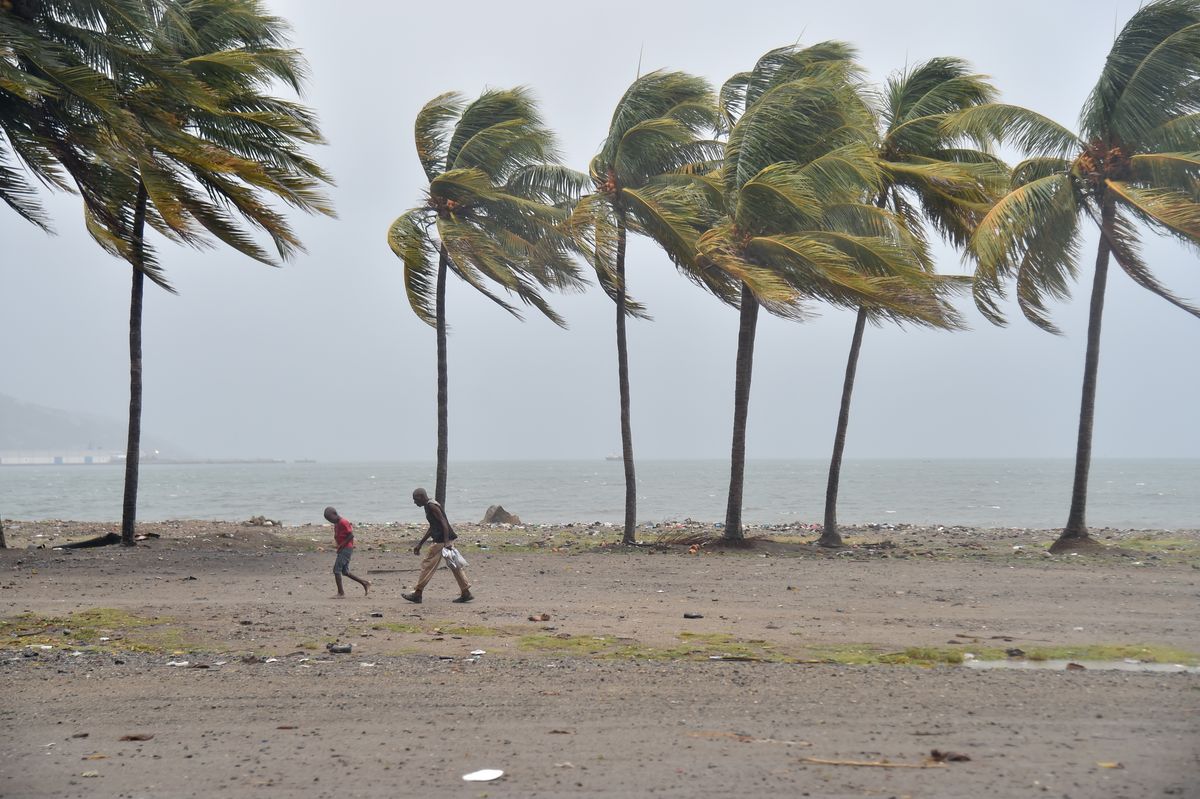
the challenge:
Several studies show extreme weather events are likely to become more intense and more frequent with strong links to human-caused climate change. In particular, those travelling abroad may find it more difficult to navigate an unexpected situation like this and may therefore, require additional assistance.the ask:
Develop a research based solution to help better prepare travellers for the extreme weather shocks in the future.The project began with some basic desk research to help identify any knowledge gaps. Derived from our core question and through a week of desk research, we defined 4 objectives that we used to understand and better define our problem.

the task:
Led along 2 other colleagues, we explored users’ relationship with emergency preparedness, travelling and where these two overlapped, if ever. We assessed our ideas with quantitative research and narrowed down the most crucial parts of the travelling journey to identify where a solution could be implemented.the research plan:
Based on our learning objectives, we chose to collect data through both one-on-one interviews and surveying. This was most cost-effective and time efficient given the two week time frame to complete the project. Our one-on-one interviews focused on emergency experts, travellers and airbnb hosts, as we identified these users closest to our problem. Additionally, we used the survey we administered to reach a broader range of people and to include more diverse backgrounds.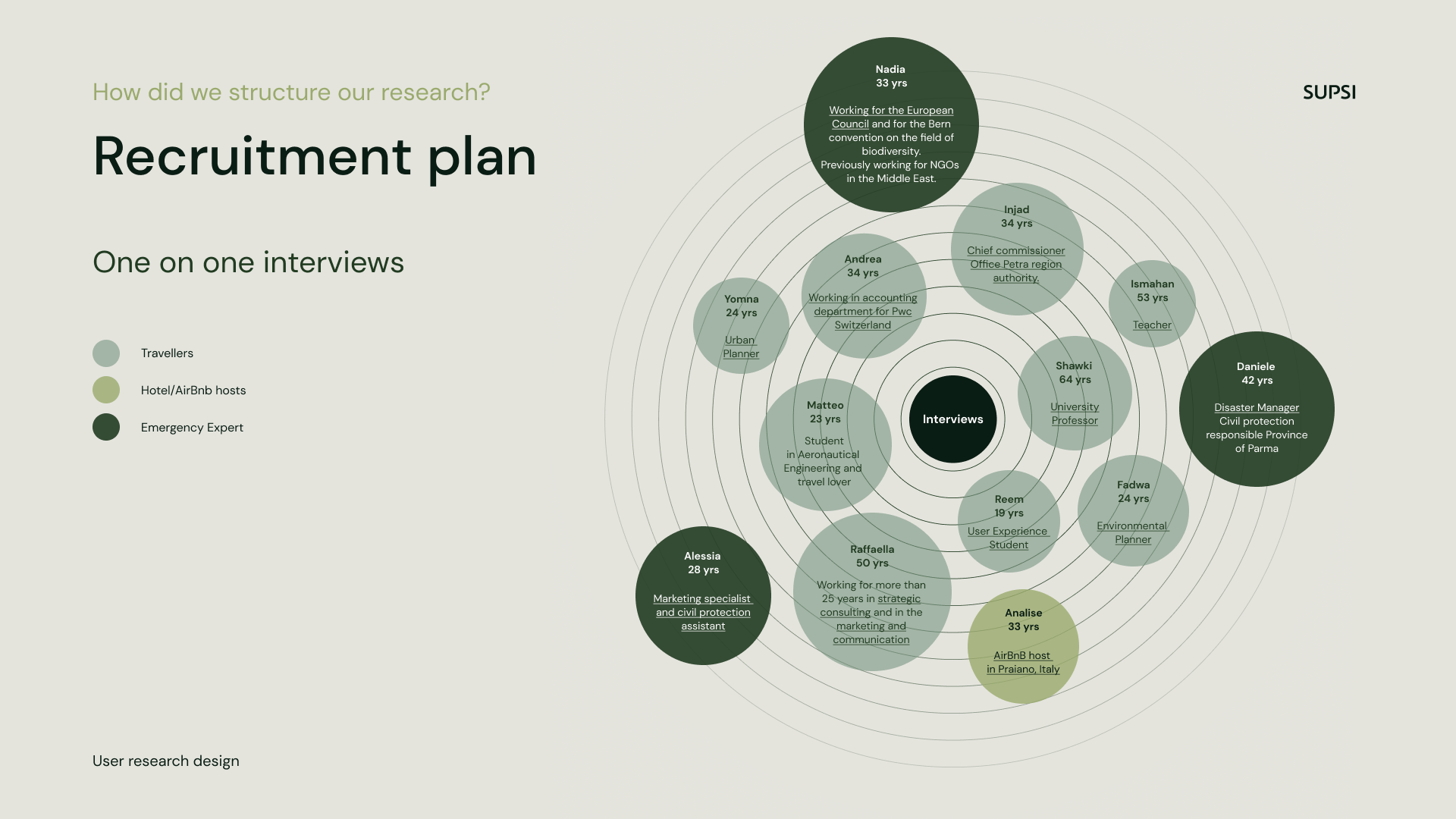
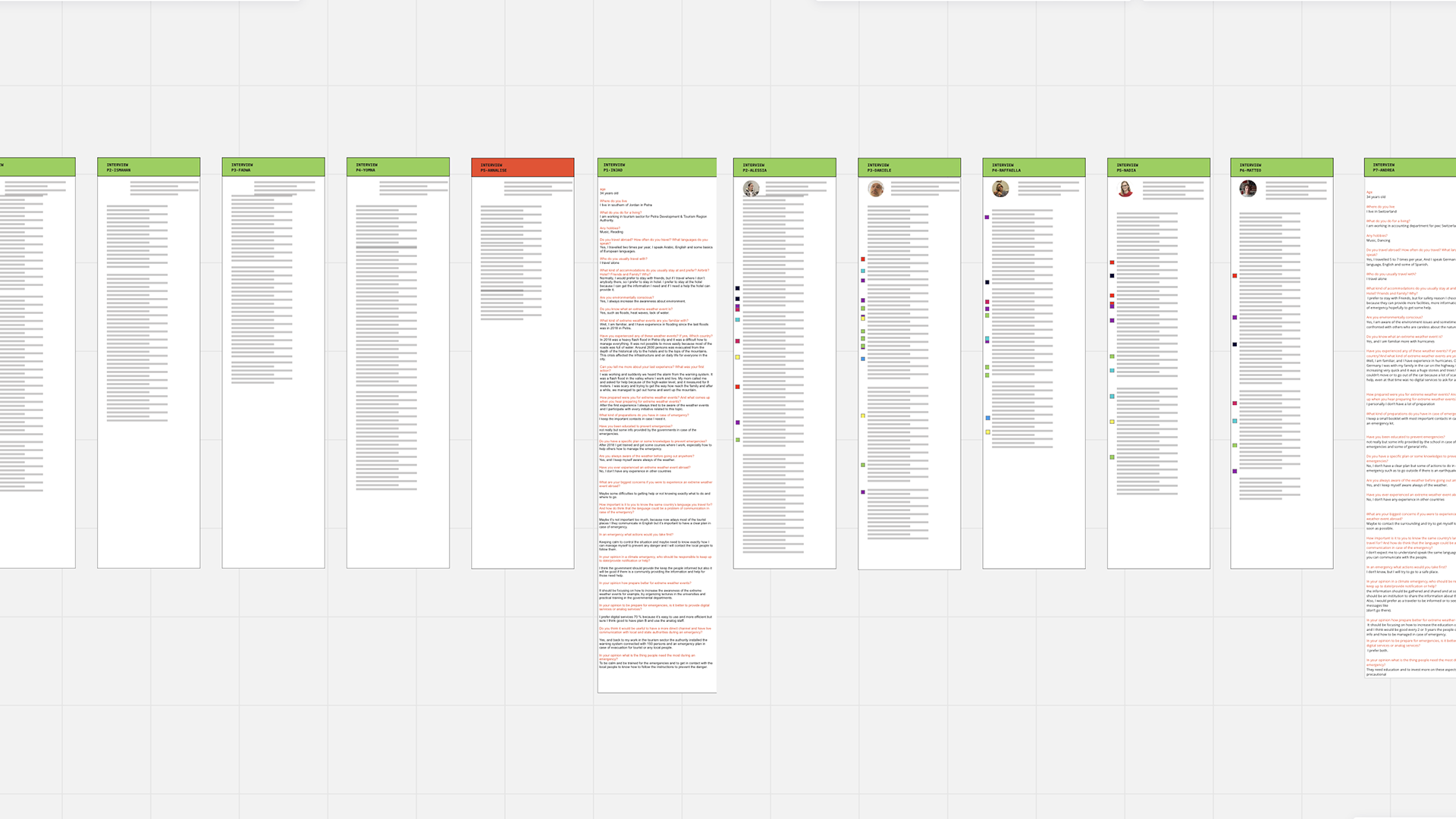
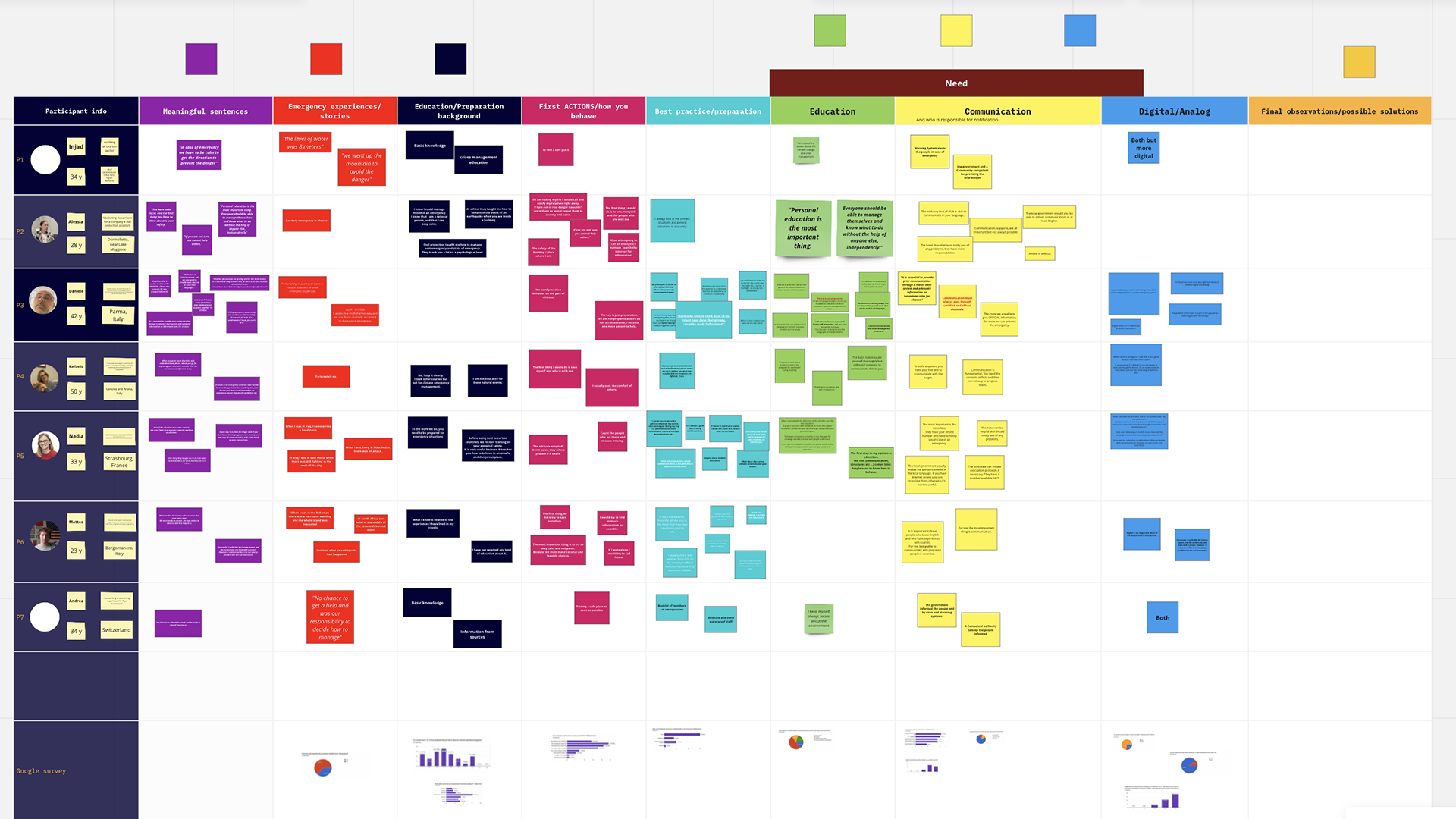
the research:
After the initial interviews and surveying, we began to cluster the interviews and particularly highlight information that we found to be interesting.After 'sorting through the mess', we discovered that in reality, people don’t prepare for emergencies. There is plenty of information available for emergency preparedness but people tend to overlook it. In particular, consulates offer communication but most users do not notify their countries consulate before travelling. We identified our biggest opportunity moving forward to be the use of integration. This was determined Some key findings and quotes and the insights that came out of the research are shown below.

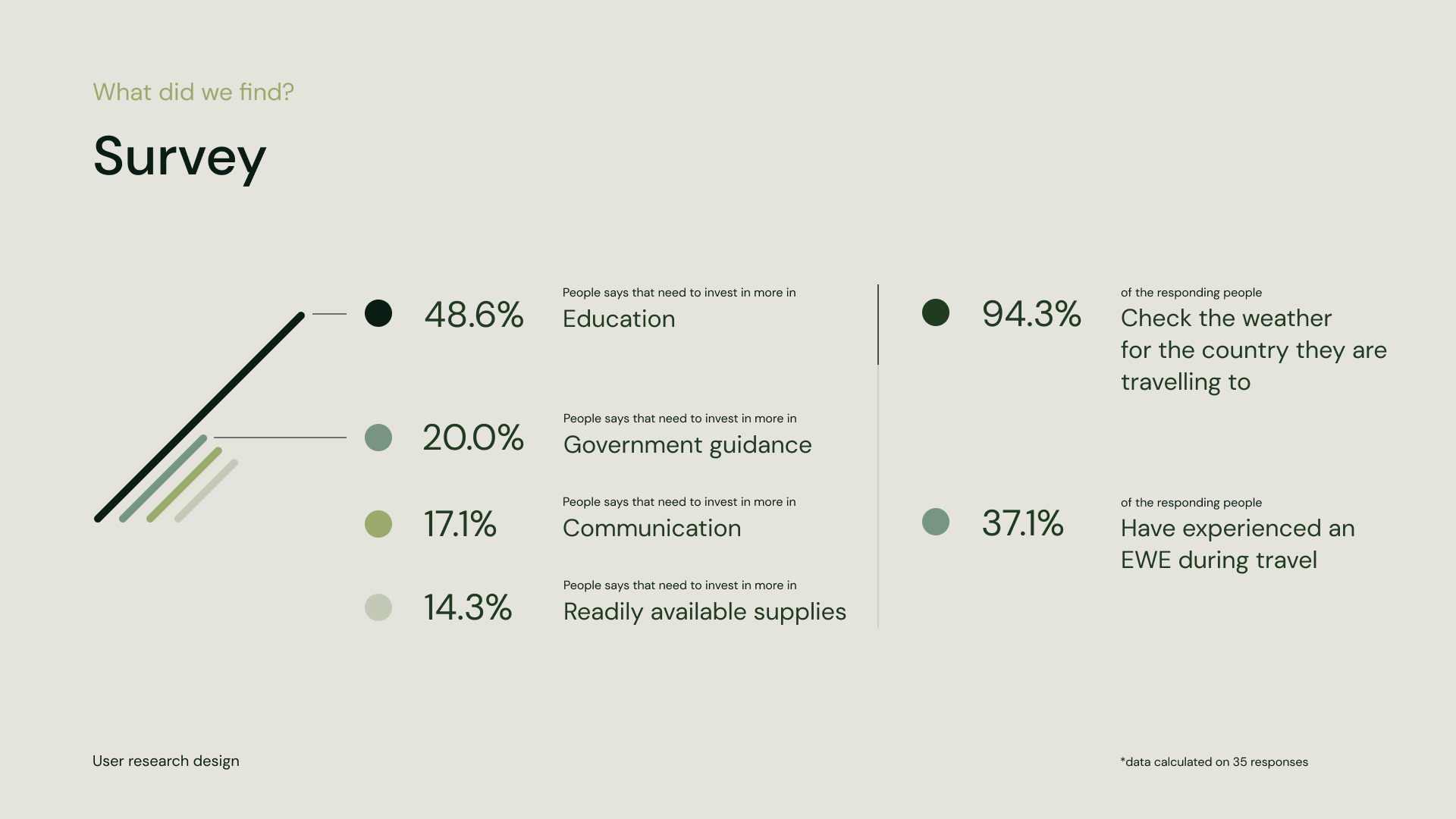

the experience:
To help better understand our insights and opportunities, we created an experience map which focused on walking through the experience of the traveller-- from the moment they’ve decided to take a vacation to the moment they come home-- in a worst case scenario. From there we mapped out the certain instances where the insights and opportunities applied most. We identified that the stages with most influence were are the booking stage and the warning stage.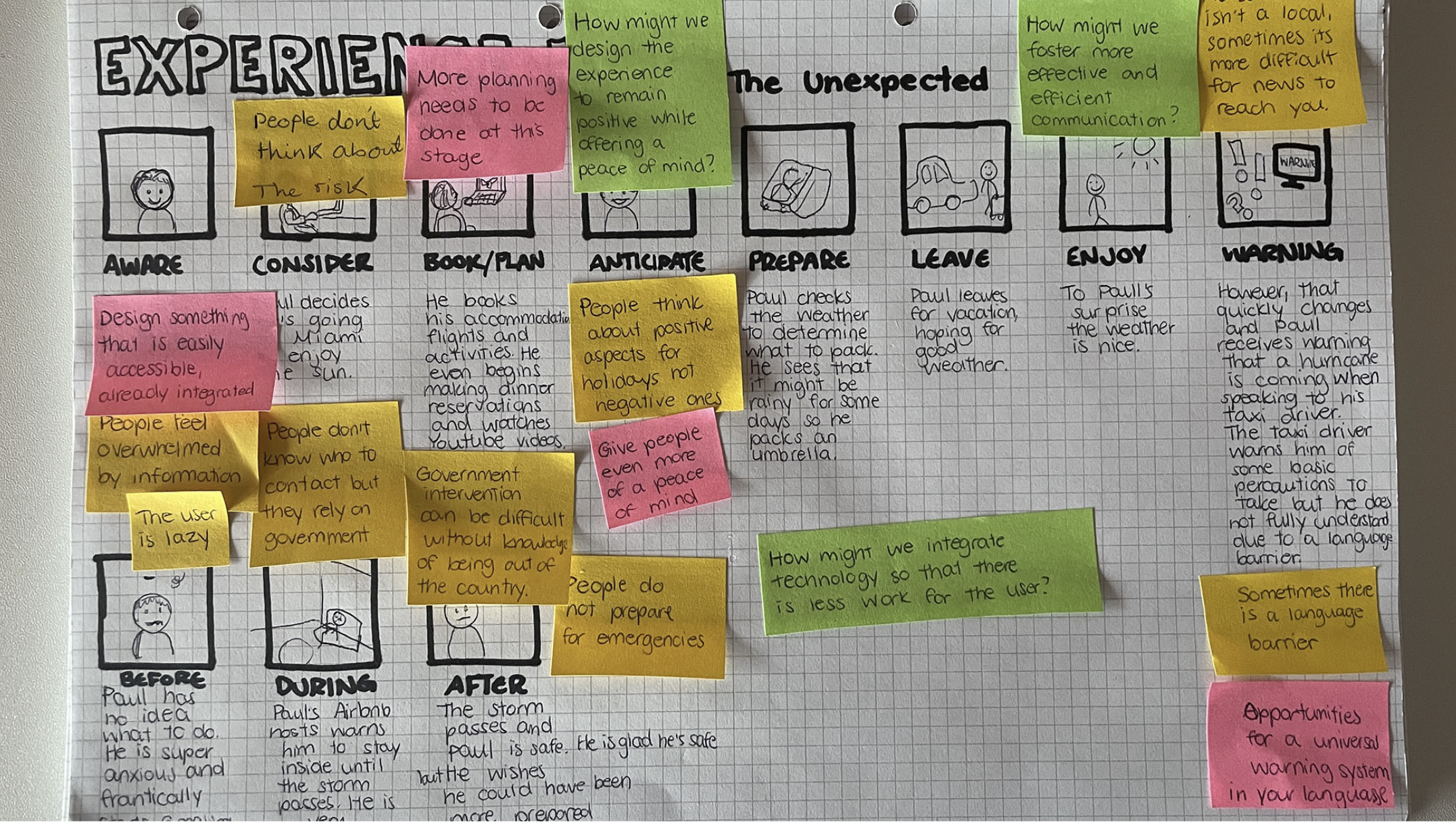
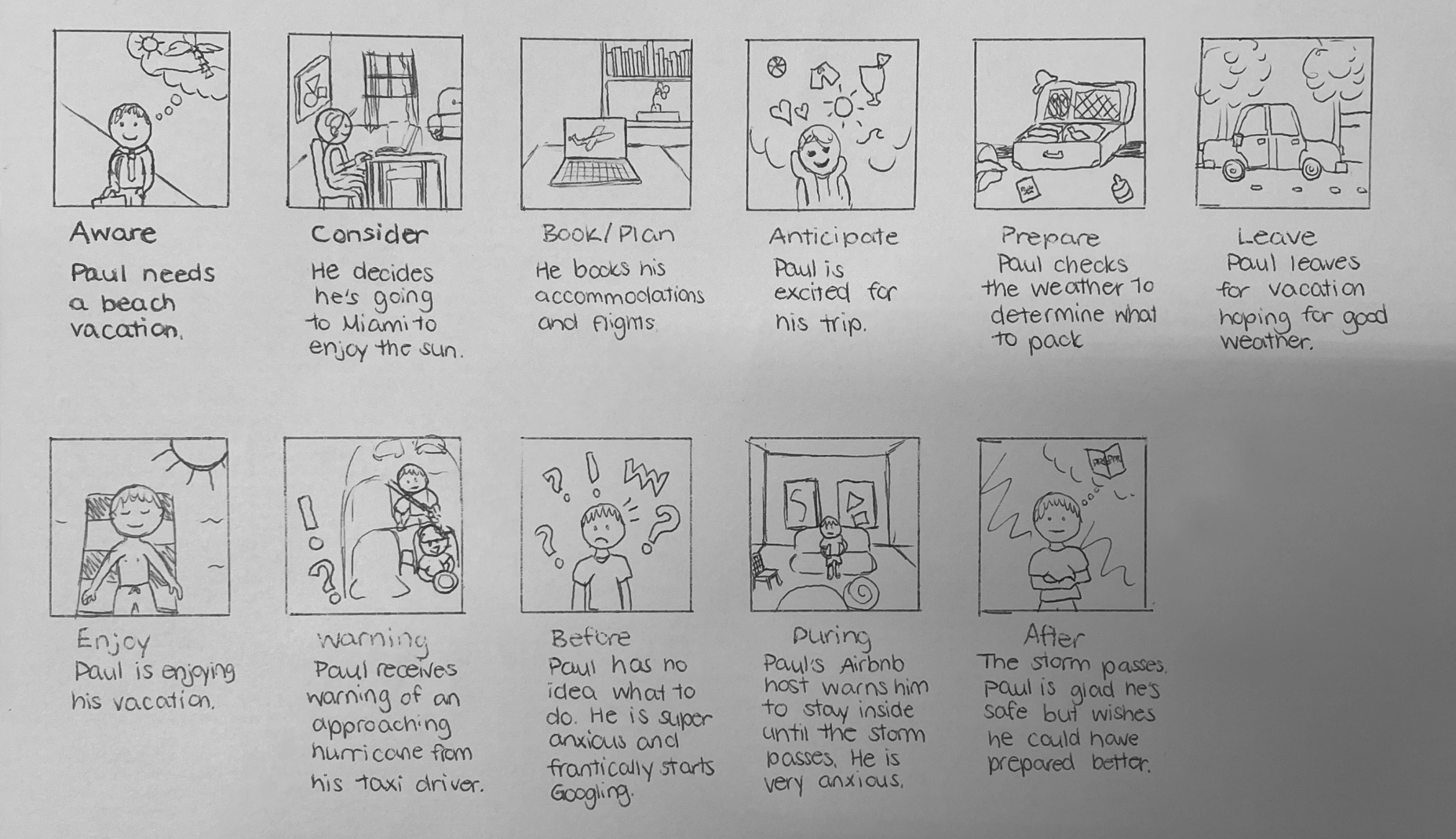

the com-B model:
Using the com-b model, we looked at the user's capabilities, opportunities and motivations to determine where and how we could propose a behavioural change. From there, we used our research and clustering to define a new how might we question. We used methods such as the crazy 8 and round robin to develop potential solutions.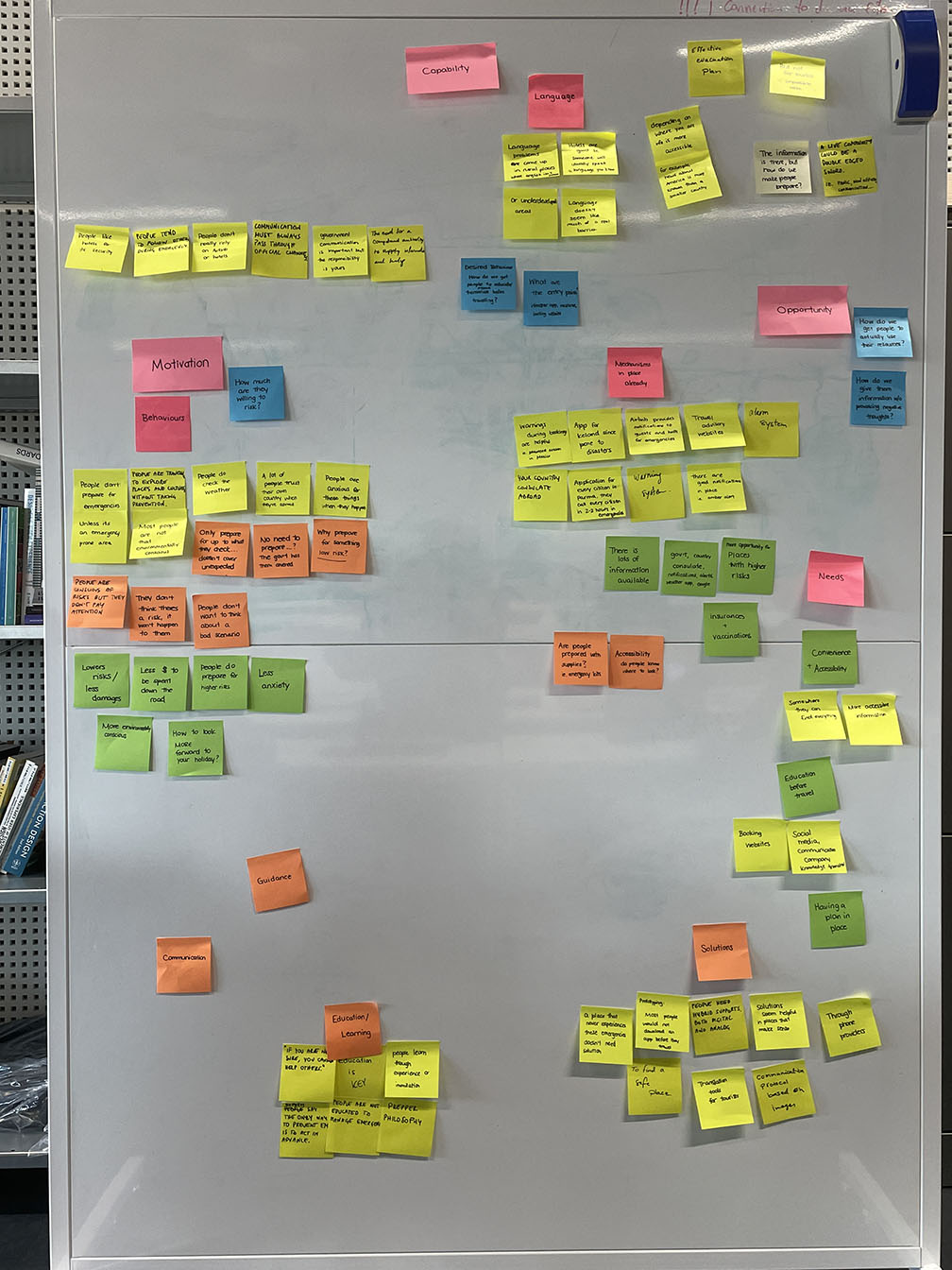

the outcome:
In our research we highlighted that if citizens register with their travel consulate, they are able to receive notifications of emergency while they are abroad which is not so widely known. We used this to our advantage within our potential solution.As a result of the study, the problem will be solved by integrating a service that connects the traveler to the consulate through an online travel agency.
With a single click, the traveler will be registered with the consulate, and therefore the user will receive guiding instructions and everything necessary to avoid any kind of danger. Through a necessary process, the user can assure they will be more prepared.

The concept will address several issues including education, accessibility, the language barrier, communication through official channels and alert systems. Through the research, we indicated that the user is lazy which is why we made this information accessible through integration and language. It will also follow ADA accessible guidelines.
We’ve addressed communication through official channels since it was reported that, that was who the public trusted the most. And lastly, we added an alert system. This way despite the guides the consulate would send, if there was no preparation done before travelling, the user would at least be notified with information as soon as possible.
With this basis, our idea was then divided into an idealistic and a more viable option.
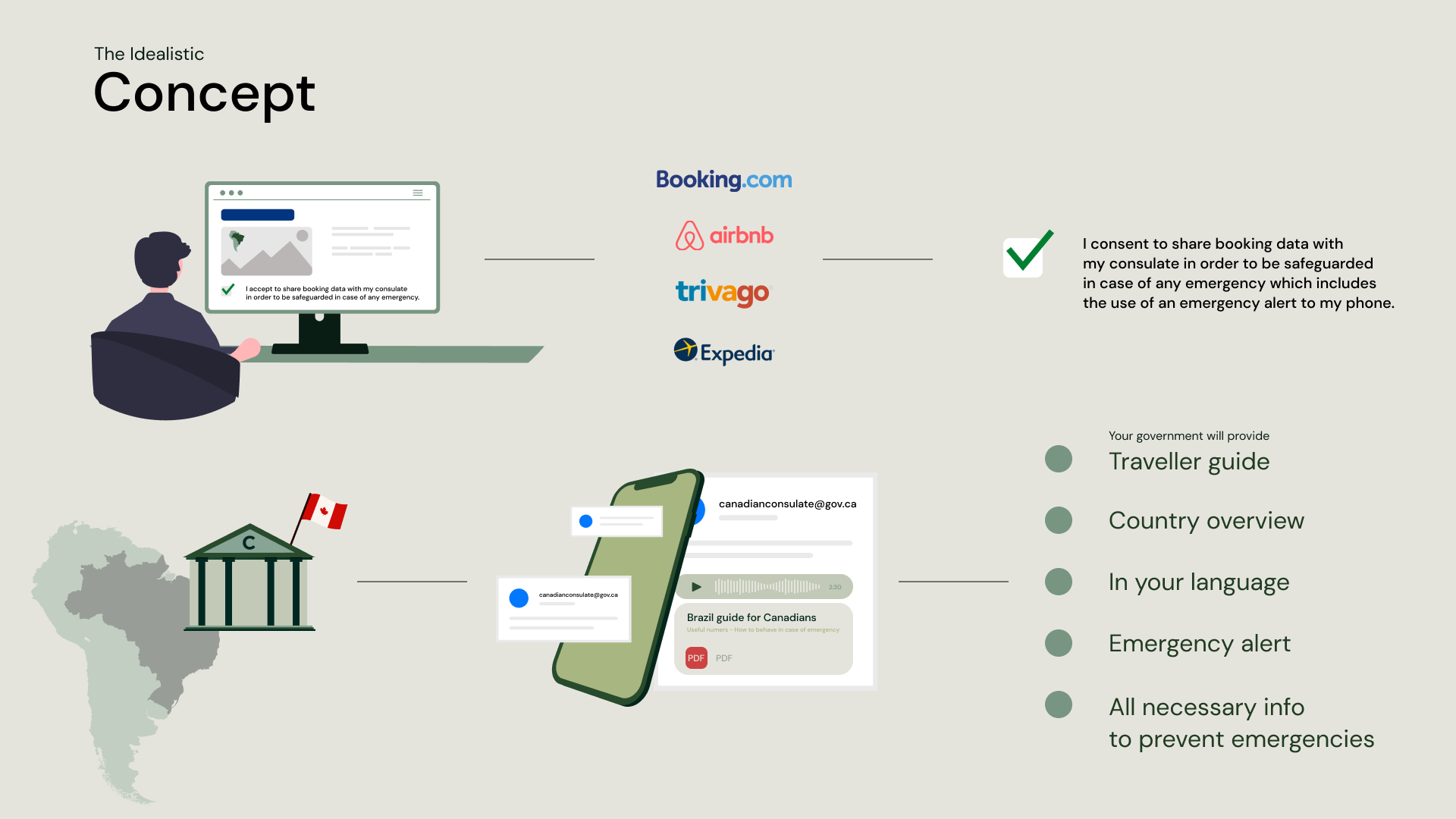
the idealistic:
This is Paul, Paul is Canadian and he’s checking out his plane tickets for his trip to Brazil. While he’s checking out he receives an additional prompt to consent his information to the Canadian Embassy in Brazil. This would notify the consulate of Paul’s departure and send him any relevant information about the country he’s travelling to in his language. Additionally, if there were any emergencies to occur while he’s abroad, the consulate would have the ability to notify Paul to his electronic devices.This would be an idealistic concept as the logistics might get hazy with the integration of the government being a little bit difficult. But overall the government provides the user with a travel guide, a country overview, in your language, an emergency alert and any necessary information to prevent emergencies.
Here, we are able to provide the user with education through government channels in a convenient way.
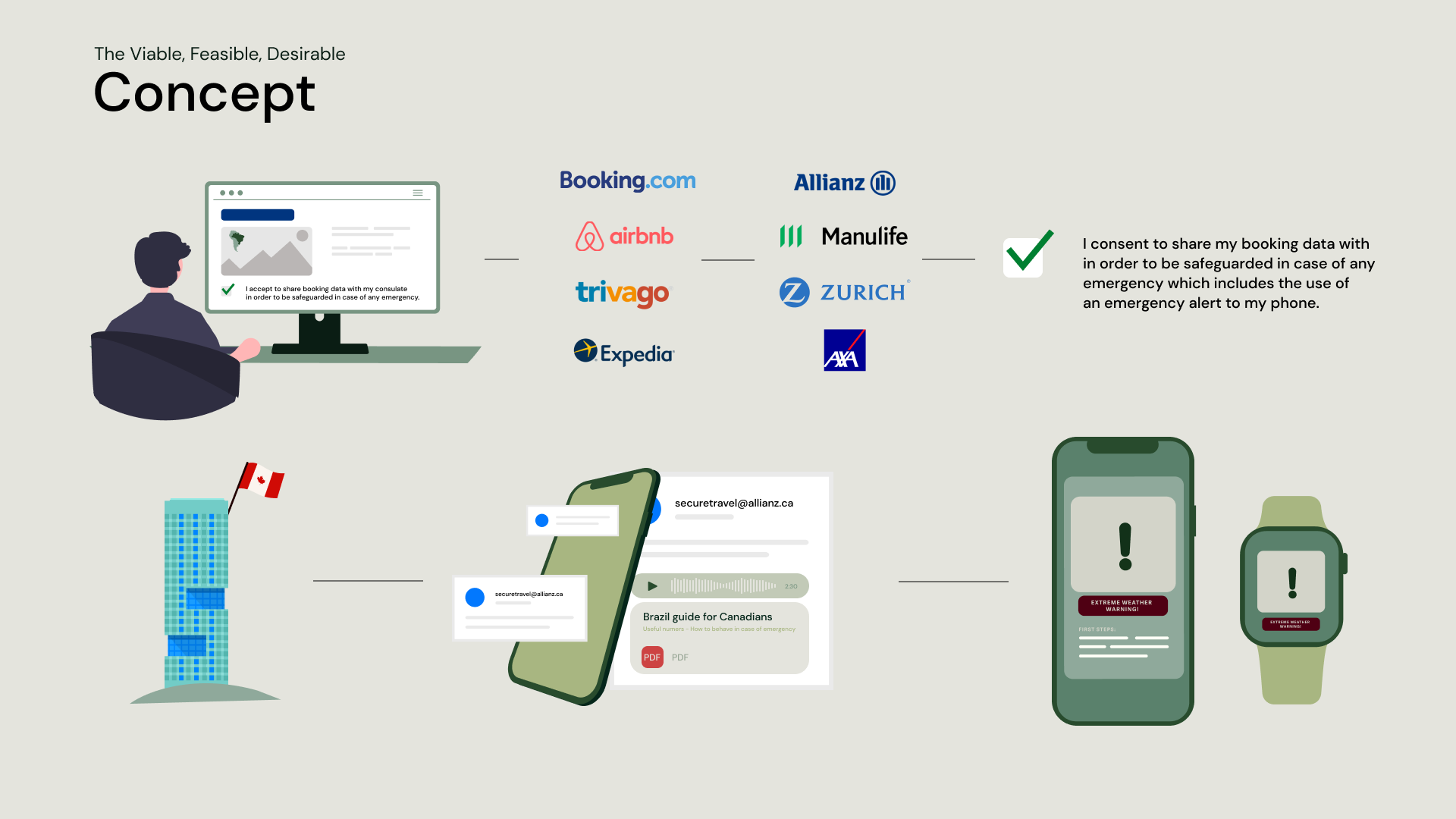
the viable, feasible, desirable:
In this scenario, it would tackle a market that exists, travellers that purchase insurance to have a peace of mind. The same service would be sold by insurance companies to better accommodate their customers. Insurance companies could have the opportunity to either charge more or leverage themselves against other companies. Those who purchase insurance would receive additional information from the company as well as alerts to better protect themselves on their trip.Although this concept doesn’t address communication through government channels, it proves a more real world application of the same concept.The concepts both still apply to the most crucial parts of the experience that we identified-- the booking stage and the warning stage.

All Flo + UTI Expansion Lingobox Travel Preparedness
ZESTI Vibe Check Keepsake Clappy Bird
Next Page︎︎︎